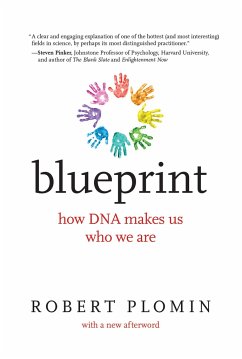
Handbook of Behavior Genetics
Versandkostenfrei!
Nicht lieferbar
Behavior Genetics is an interdisciplinary area combining behavioral sciences and genetics. The study of behavior genetics has become increasingly important as we see growth spurts in finding genes involved in complex behaviors following on advances in molecular genetic techniques. This domain has now become a vast common ground for scientists from very diverse fields including psychology, psychiatry, neurology, endocrinology, biochemistry, neuroimaging, and genetics. However, there are not many textbooks or references to which students in behavior genetics can access for their research and cla...
Behavior Genetics is an interdisciplinary area combining behavioral sciences and genetics. The study of behavior genetics has become increasingly important as we see growth spurts in finding genes involved in complex behaviors following on advances in molecular genetic techniques. This domain has now become a vast common ground for scientists from very diverse fields including psychology, psychiatry, neurology, endocrinology, biochemistry, neuroimaging, and genetics. However, there are not many textbooks or references to which students in behavior genetics can access for their research and class. The purpose of this handbook is to offer research guides to the studies of genetic and environmental influences on a variety of complex behaviors in humans and animals. Unlike previous behavior genetics textbooks, this handbook will discuss current research and topics of interest to psychologists, psychiatrists, and geneticists. Utilizing methodologies and theories commonly used in behavior genetics, each chapter will begin with an overview of the selected topic; current research and issues will be intensively reviewed; and we will direct future research on the topic at the end of the end of the chapter. So the handbook will integrate many of the basic issues of the Behavior Genetics and will enhance our understanding in many fields. Therefore, this handbook will provide future research endeavors for the next 10 years. Throughout this handbook the editor will collaborate with contributors who are internationally well known in the field. The Behavior Genetics Association members and the Behavior Genetics Editorial Advisory Board will be invited to review the manuscripts of this handbook.












